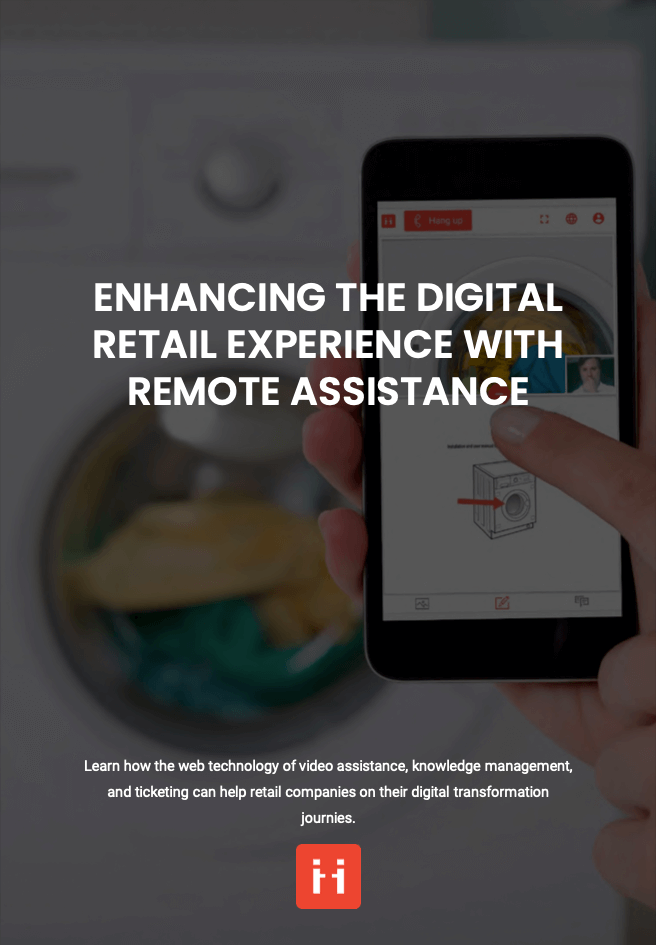
Share this article
Share this article
In some ways, customer service has barely evolved since the early days. The focus of good service is still on customer satisfaction. What has changed is the medium through which service is provided. Today, technology is giving customers options beyond visiting a business in person. They can contact customer support through a phone call or by using online support tools. Many call centers now offer omnichannel support from live chat to video calls. As the customer, you may not notice that sometimes you are not interacting with a human customer service representative. In addition, many companies are now implementing artificial intelligence (AI) customer service tools to improve customer engagement.
AI-enabled contact centers use AI to enhance the customer experience. Recently, AI technologies like chatbots have improved customer interactions using Facebook messenger or apps like chatbot. These programs use natural language processing and machine learning to interpret human language. These technologies enable a natural-sounding text conversation with the AI. For example, chatbots are able to answer a frequently asked simple question. Human agents are thus able to focus on more complex situations. Investments in AI are enabling the transition between AI-agent and humans to become more seamless. These tools can customize interactions with customers for your specific use case.
AI in customer service entails analyzing customer data to design an individualized approach to providing support. For example, prediction intent software uses behavioral profile pairing to match callers with support agents best adapted to their cognitive and emotional needs. Prediction intent technology pairs a customer who is easily upset with the most qualified support agent.
Alternatively, it connects a customer who has trouble understanding technical details to a support agent who is skilled at explaining things simply. ViiBE’s expertise call routing works using the same principle. The caller is put in touch with the most qualified expert from the beginning, avoiding the time and effort of navigating a corporate directory.
Finally, Robotic Process Automation (RPA) is increasingly implemented in call centers to automate post-call work and other data entry tasks. RPA has increased productivity in many industries. RPA itself improves the efficiency of repetitive tasks by evenly applying measures, thus improving ensuring accuracy. Solutions like Automation Everywhere remove the necessity for agents to switch between different systems to do their job. Once RPA frees them from repetitive tasks, employees are more motivated to take on more challenging work, boosting productivity.
While AI and automation are excellent ways to improve customer service, it’s only part of the story. AI frees your employees to focus on the most intellectually stimulating aspects of their job.
To further their performance, technologies like ViiBE improve the human part of the equation. ViiBE’s knowledge management tool makes it easy for call center staff to access the latest procedural information and past call information. You can also draw from past interactions for employee training or update a customer self-service knowledge base with the most pertinent information. ViiBE’s flexible solutions make providing excellent customer service more straightforward than ever before.
Despite our darkest science-fiction fears of machines taking over, customer service agents will be sticking around in most cases. Keep in mind that AI and automation technology are not a replacement for human employees. While their capabilities are impressive, they are not capable of thinking but merely executing commands. The complexity of the tasks AI can complete is slowly growing with time.
Human employees are increasingly working alongside an AI which performs predictable and repetitive tasks, such as with IBM’s Watson Assistant and its agent assist capability. These include collecting customer information, sorting customers and connecting them to the right agent, and answering basic queries.
Video assistance is also playing a more prominent role in customer service. ViiBE’s secure WebRTC-based web app makes it simple to connect, no matter the device. This simplicity speeds up the connection between customers and service representatives, leading to faster customer satisfaction.
Additionally, when a customer experiences a service failure, a human employee’s discretion is needed to guide the customer towards a service recovery. The growth of video assistance demonstrates that the human connection is still an essential part of customer service.
AI and ViiBE are two technologies that improve human productivity and enable employees to do better jobs. In the online world of customer service, video assistance and AI work together more than in competition. So yes, AI is the future of customer service, but so are human employees!

AI has a long list of benefits. First, it improves client satisfaction because it is faster and more efficient. AI enables customers to quickly find answers to common questions and reduces call wait times. Second, human support staff are more attentive to customer issues because they focus on more substantial cases. Finally, team members are more motivated by less repetitive, more mentally stimulating work.
For complex tasks, AI alone may not be enough to achieve optimal customer satisfaction. Customers can quickly connect to a ViiBE call, no download required, to speak with support staff about a specific concern. ViiBE’s omnichannel communication adds the benefits of face-to-face communication and improved communication of empathy. The customer can demonstrate their issue on-screen (or share their screen), while the support agent can annotate screenshots or easily share photos or documents. ViiBE tracks KPIs like first call resolution in real-time, so you can rest assured that your employees are performing optimally.
Artificial Intelligence is a versatile technology that is improving productivity in a wide area of use cases. Today’s technology is empowering companies to provide better customer service than ever before. AI frees up employees to be more attentive to customers. Other technologies like ViiBE empower support agents to provide customers with more personalized service. For example, ViiBE’s ticketing solution can organize multiple calls under a single ticket. This capability makes it easier to resolve repeat-call issues and follow-up to ensure customer satisfaction. While customers are visiting business in person less than before, customer service has never been better thanks to AI and tools like ViiBE!
AI’s versatility is revolutionizing productivity across various industries, including web design, making it essential to know more about its transformative applications and benefits.

Free E-book available now!